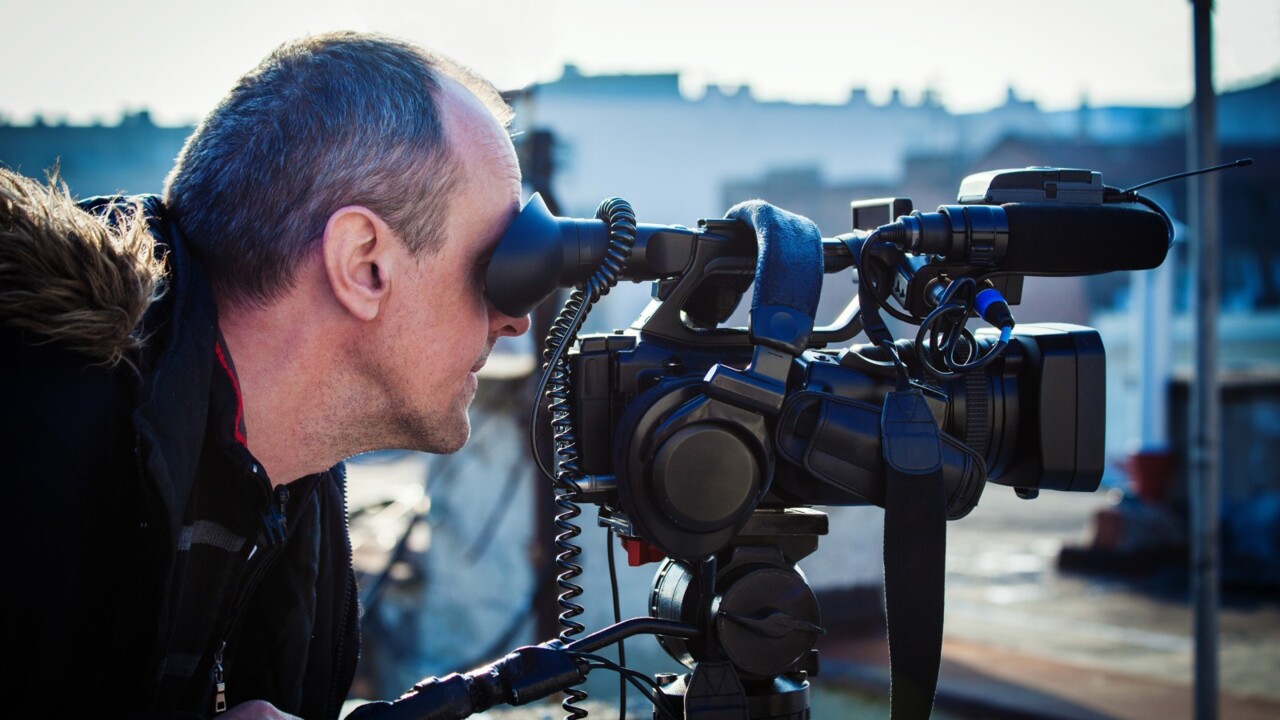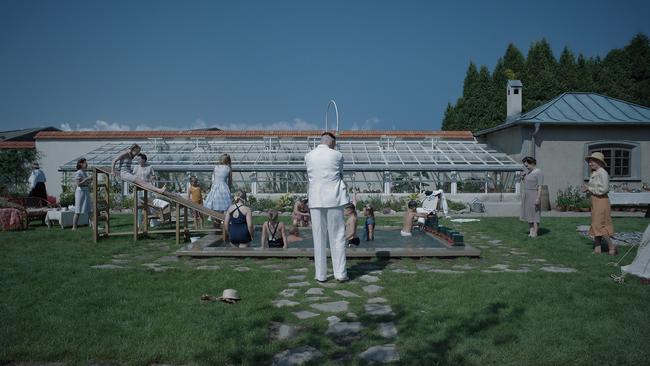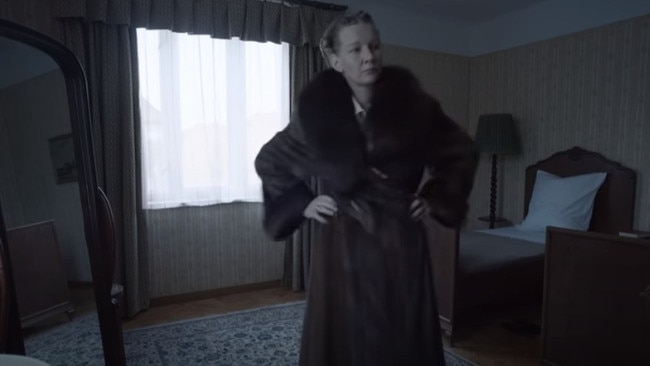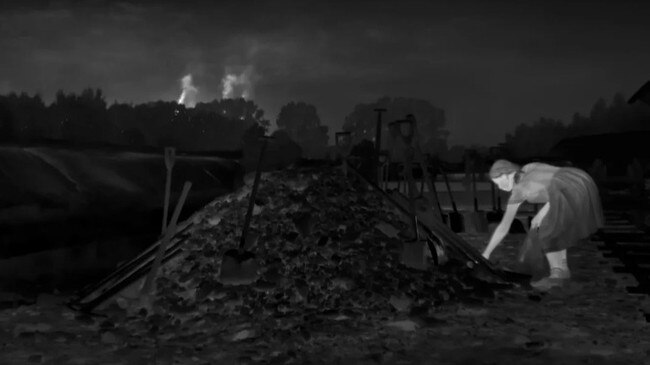The Zone of Interest is incredible – and the year’s most disturbing film
Not much happens in this new film, up for five Oscars – it’s what happens off-screen that will haunt you forever. WARNING: Spoilers.

Entertainment
Don't miss out on the headlines from Entertainment. Followed categories will be added to My News.
WARNING: Spoilers below.
Nothing much happens in director Jonathan Glazer’s newest film, The Zone of Interest.
For 105 minutes, we watch as a stay-at-home mum tends to her garden, her children play in the backyard pool, and her husband leaves for work in the morning, returning each evening exhausted and ready for a family dinner.
What makes it one of the most disturbing films you’ll ever watch is what doesn’t happen on screen – the terrifying sounds of misery playing out just out of frame.
That’s because the father in the film is real-life German Nazi commandant Rudolf Höss, and The Zone of Interest – up for five awards including Best Picture at next month’s Oscars – follows him and wife Hedwig as they raise their family in a new home right next to Auschwitz concentration camp.

The camp, site of the murder of an estimated 1.1 million people during World War II, literally shares a wall with the Höss family’s pristine, pastoral garden. As viewers, we never see so much as a glimpse over that wall. The focus remains firmly on the Höss family and the mundane routines of their home life.
And this is where the film’s genius comes into play, with a truly horrifying sound design, which Glazer has explained he conceived as belonging to a completely different movie. There’s the film we see, then the film we hear – the sounds coming from just over the wall.
And they are gut-churning. Scene after scene of happy family life plays out as beyond the wall, we hear unmistakeable sounds of human misery and torture: Gunshots, dogs barking, guards shouting and desperate people pleading for their lives.
Most jarring of all is that nobody in the family flinches. After several years spent living at Auschwitz, the constant, harrowing sounds of death are just white noise.

Not that they can entirely block it out: The horrifying reality of what they’re doing keeps finding a way to rudely interrupt their picture-perfect lives.
Rudolf hurries his children out of a nearby river after he stumbles upon human remains during their swim; Hedwig’s visiting mother abandons her stay after one night when she’s woken by the sight – and sickening smell – of the camp’s chimneys as they burn bodies.
Meanwhile, some of the film’s most anxiety-inducing scenes are shot in complete darkness, with only a heat-sensitive night vision camera used.
We watch on, holding our breaths, as a young servant girl in the Höss house sneaks out each night, hiding food at prisoners’ work sites for them to find and eat. A nightly, death-defying act of hope and resistance, before she slips back into the house unnoticed.

Glazer revealed in a recent interview that those brief scenes, so different from the rest of the film, were essential to include – for his own sanity, as much as anything.
“I kept ringing my producer, Jim, and saying: ‘I’m getting out. I can’t do this. It’s just too dark,’” he told the Guardian of making the film.
“It felt impossible to just show the utter darkness, so I was looking for the light somewhere and I found it in her. She is the force for good.”
And in a film full of chilling performances, Sandra Hüller (nominated for a Best Actress Oscar this year for her work in Anatomy of a Fall) is truly monstrous as Hedwig. She vainly models a fur coat stolen from a woman sent to the camp, threatens her terrified servant that her husband could have her killed, and even brags she’s earned the nickname “Queen of Auschwitz”.
By the time, late in the film, that Rudolf phones home from a party in Berlin and blithely tells his wife he’s been distracted all night thinking about the most efficient way to gas all the guests, it’s clear any trace of their humanity is long gone.
There is no attempt at a happy ending here; Glazer does not extend his focus to the liberation of Auschwitz or to Höss’s subsequent execution for his crimes in an attempt to placate the viewer that good will prevail. Instead, it’s the sort of film that will leave you sat in the cinema feeling shell-shocked, sickened by the banality of evil.
The Zone of Interest is in cinemas now.
Originally published as The Zone of Interest is incredible – and the year’s most disturbing film





